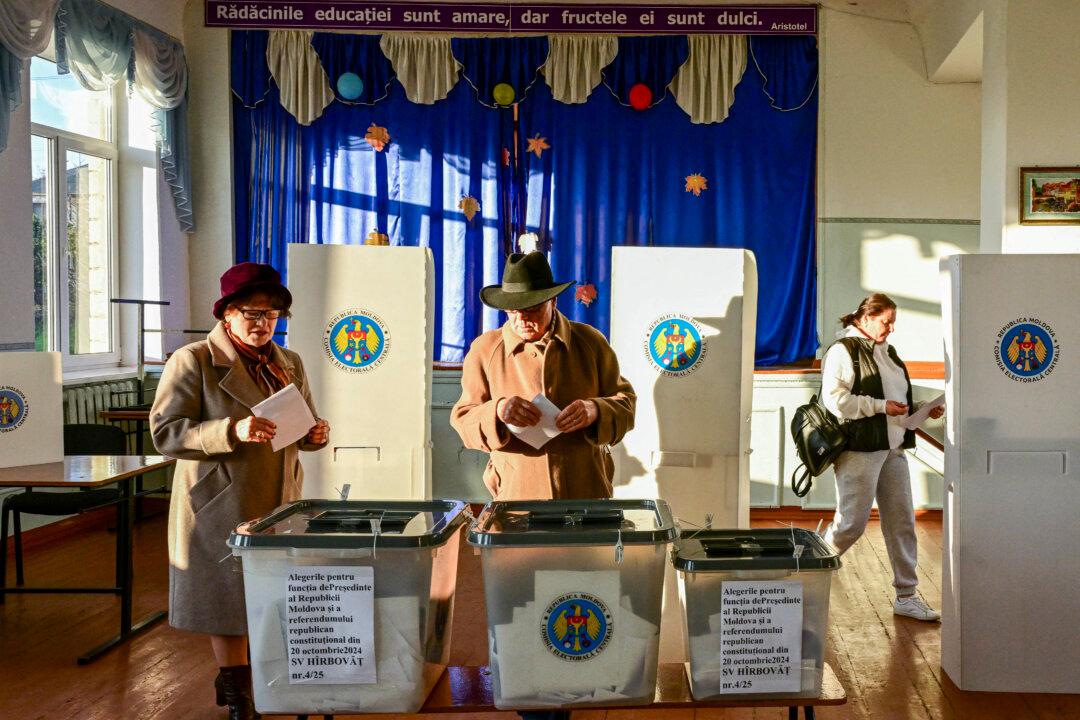A razor-thin majority of 50.4 percent of Moldovans voted yes on Monday in a referendum on whether to amend the constitution to establish EU membership as a national goal.
In the presidential election, held alongside the referendum, President Maia Sandu won 42 percent of the vote, short of the 50 percent needed to win outright and paving the way for a Nov. 3 runoff against former prosecutor-general Alexandr Stoianoglo, who won 26 percent.





